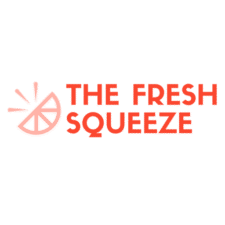Key vitamins, minerals, and dietary habits that benefit both mother and baby
Introduction
Pregnancy is one of the most nutritionally demanding times in a woman’s life. Your body isn’t just maintaining your own health — it’s building the organs, bones, brain, and immune system of your baby.
The foods and supplements you choose during this time can directly influence your baby’s development, your energy levels, and even how you feel emotionally throughout pregnancy. By focusing on essential nutrients and healthy eating habits, you can give both yourself and your baby the strongest start possible.
Why Prenatal Nutrition Matters
-
Supports fetal growth and development, especially brain, bone, and organ formation
-
Reduces risk of pregnancy complications like anemia, preterm birth, and low birth weight
-
Supports maternal health, reducing fatigue and aiding recovery after birth
-
Helps maintain stable mood and energy during hormonal shifts
Key Vitamins and Minerals for Pregnancy
1. Folate (Folic Acid) — Neural Tube Development
-
Why: Essential for the early development of your baby’s brain and spinal cord.
-
Sources: Leafy greens, lentils, beans, fortified grains.
-
Tip: Most doctors recommend a prenatal vitamin with at least 400–800 mcg of folic acid starting before conception.
2. Iron — Oxygen for Two
-
Why: Needed to make extra blood for both you and your baby, preventing anemia and fatigue.
-
Sources: Lean meats, lentils, spinach, pumpkin seeds.
-
Tip: Pair with vitamin C–rich foods (like citrus or peppers) to enhance absorption.
3. Calcium — Building Baby’s Bones and Teeth
-
Why: If you don’t get enough calcium, your body will pull it from your bones to meet your baby’s needs.
-
Sources: Dairy, fortified plant milks, tofu, almonds, leafy greens.
4. Vitamin D — Immune and Bone Support
-
Why: Works with calcium for bone health and helps regulate immune function.
-
Sources: Sunlight, fatty fish, fortified milk, supplements if needed.
5. Omega-3 Fatty Acids (DHA) — Brain and Eye Development
-
Why: DHA supports your baby’s brain, eye, and nervous system development.
-
Sources: Salmon, sardines, chia seeds, flaxseeds, walnuts.
-
Tip: Choose low-mercury fish or an algae-based supplement.
6. Protein — Growth and Repair
-
Why: Supports the growth of fetal tissues, including the brain, and helps build maternal tissues like the uterus and breasts.
-
Sources: Eggs, poultry, beans, lentils, Greek yogurt, quinoa.
Healthy Eating Habits for Pregnancy
-
Eat Balanced Meals
Include a mix of protein, healthy fats, and complex carbohydrates to keep energy and blood sugar stable. -
Stay Hydrated
Aim for at least 8–10 cups of water daily to support increased blood volume and amniotic fluid. -
Limit Processed Foods
Focus on whole, nutrient-rich foods to maximize vitamin and mineral intake. -
Avoid Harmful Foods
Steer clear of raw seafood, unpasteurized dairy, deli meats, and high-mercury fish. -
Mind Small, Frequent Meals
Helps manage morning sickness and prevents energy dips.
The Bottom Line
Prenatal nutrition is more than a checklist — it’s about creating a strong foundation for both you and your baby. By focusing on key nutrients like folate, iron, calcium, vitamin D, omega-3s, and protein, while maintaining balanced eating habits, you can support healthy growth, reduce complications, and feel your best during pregnancy.
Think of every bite as building blocks for your baby’s future health — and for your own well-being.
